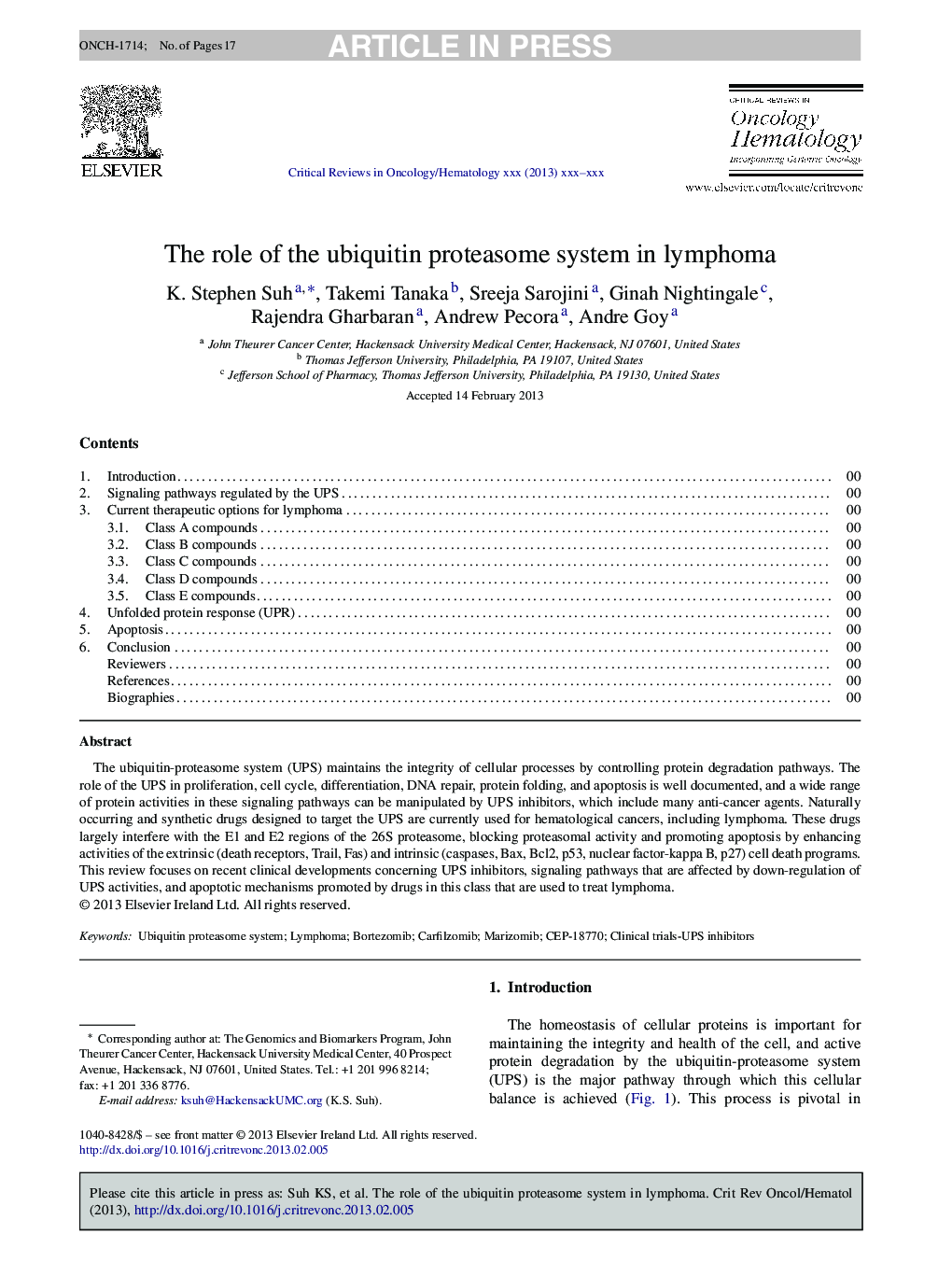| Article ID | Journal | Published Year | Pages | File Type |
|---|---|---|---|---|
| 6113690 | Critical Reviews in Oncology/Hematology | 2013 | 17 Pages |
Abstract
The ubiquitin-proteasome system (UPS) maintains the integrity of cellular processes by controlling protein degradation pathways. The role of the UPS in proliferation, cell cycle, differentiation, DNA repair, protein folding, and apoptosis is well documented, and a wide range of protein activities in these signaling pathways can be manipulated by UPS inhibitors, which include many anti-cancer agents. Naturally occurring and synthetic drugs designed to target the UPS are currently used for hematological cancers, including lymphoma. These drugs largely interfere with the E1 and E2 regions of the 26S proteasome, blocking proteasomal activity and promoting apoptosis by enhancing activities of the extrinsic (death receptors, Trail, Fas) and intrinsic (caspases, Bax, Bcl2, p53, nuclear factor-kappa B, p27) cell death programs. This review focuses on recent clinical developments concerning UPS inhibitors, signaling pathways that are affected by down-regulation of UPS activities, and apoptotic mechanisms promoted by drugs in this class that are used to treat lymphoma.
Related Topics
Health Sciences
Medicine and Dentistry
Hematology
Authors
K. Stephen Suh, Takemi Tanaka, Sreeja Sarojini, Ginah Nightingale, Rajendra Gharbaran, Andrew Pecora, Andre Goy,
